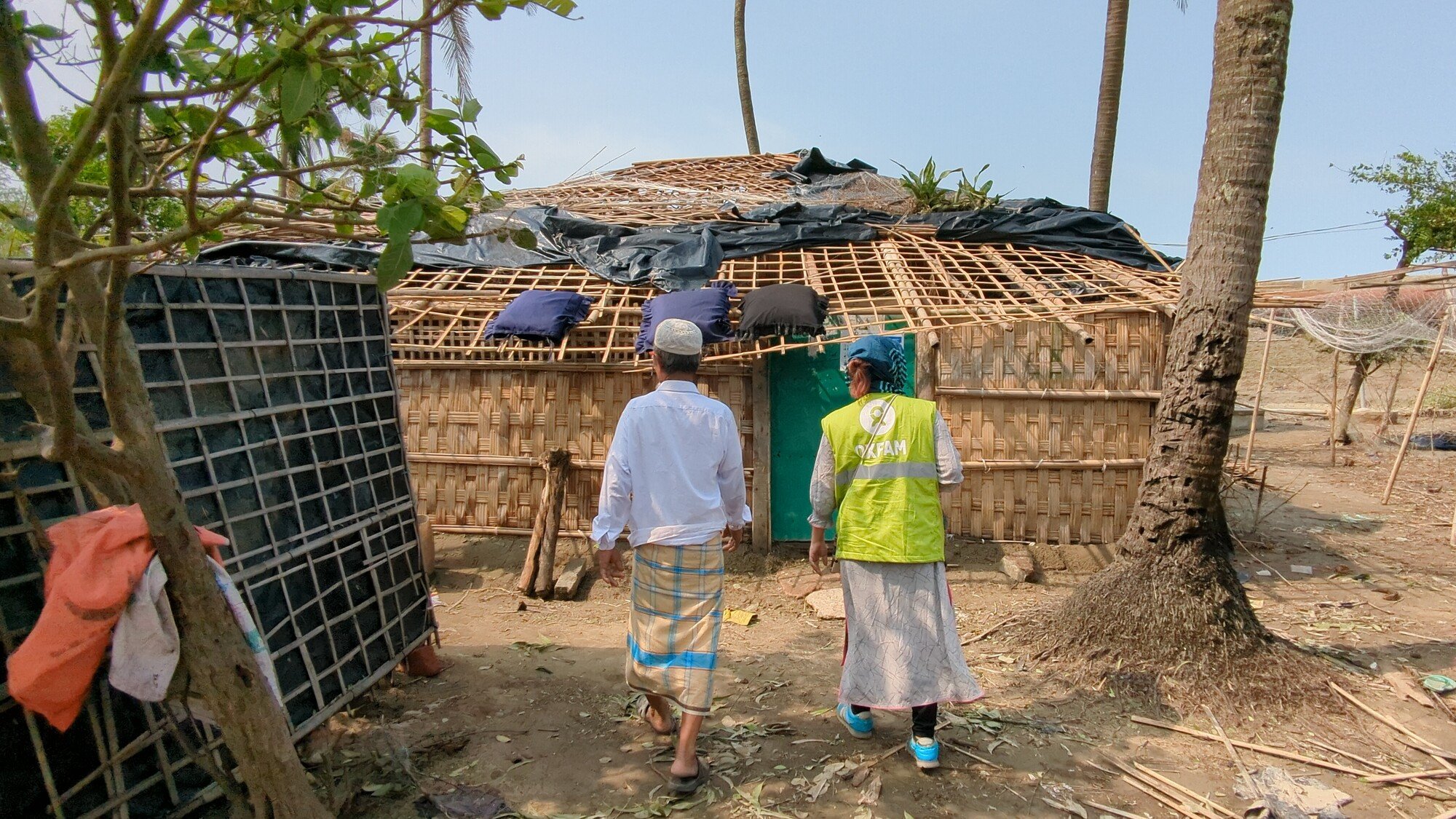Clean water, cash, food, and shelter are among the highest priorities for areas in Bangladesh and Myanmar hit by largest storm in decades.
Oxfam and our partners in Myanmar and Bangladesh are assessing the scale of devastation from super Cyclone Mocha and are mounting a humanitarian response in the areas hit hardest by the storm. Plans for assistance include clean water, sanitation and hygiene facilities, as well as emergency cash and food.
“Our teams faced terrifying winds which damaged homes, toppled trees, and disrupted power and communication lines,” reports Rajan Khoslam, Oxfam’s country director in Myanmar.
Cyclone Mocha has caused extensive destruction and killed dozens of people in Myanmar. Thousands of people displaced by conflict living in camps in Rakhine state have been affected by the storm, the largest in recent history with winds of 130 miles per hour.
Oxfam already has more than 100 staff and volunteers working in Rakhine state. With your support, they are already assessing humanitarian needs and distributing emergency aid such as chlorine (for treating water), hygiene kits, and food.
Oxfam staff describe buildings in the camps for displaced people in Rakhine state as “severely damaged” with roofs blown off and walls damaged by heavy winds. They estimate that 1.8 million people live in the 17 most heavily affected communities, and that 600,000 people are severely affected by the storm.
An estimated six million people in Myanmar are in need of humanitarian assistance in the states where the cyclone hit (Rakhine, Chin, Magway, and Sagaing).

In Bangladesh, strong winds blew away the temporary bamboo homes in the Teknaf area of Cox’s Bazar, where hundreds of thousands of Rohingya refugees from Myanmar are seeking shelter. Oxfam prepared for the storm by providing cash to communities ahead of time, and had clean water ready to help families survive the storm’s impact.
“Oxfam’s main relief efforts will focus on safe water for people, as well as sanitation supplies and public health support to prevent the spread of water-borne diseases,” said Ashish Damle, Oxfam’s director in Bangladesh.



